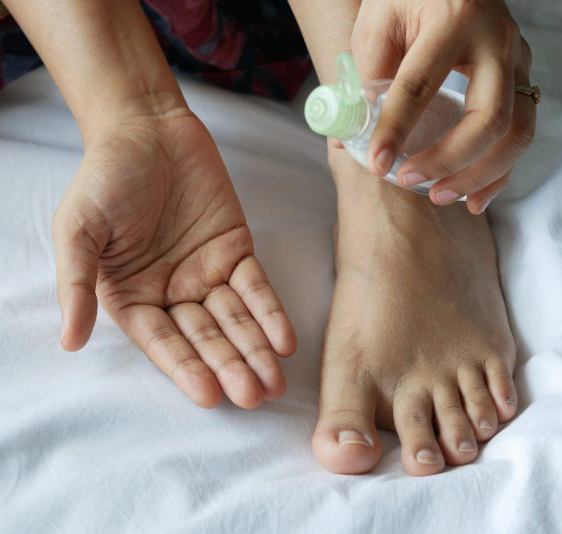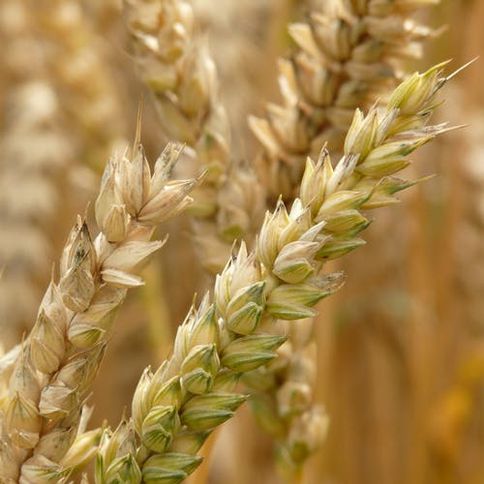Living Well with Metastatic Breast Cancer: Ayurvedic Approaches for Strength and Vitality
Living Well with Metastatic Breast Cancer: Ayurvedic Approaches for Strength and Vitality

Understanding Metastatic Breast Cancer
Metastatic breast cancer, often referred to as advanced or stage IV breast cancer, occurs when cancer cells spread beyond the breast to other areas of the body, such as the bones, lungs, or liver. This stage of cancer brings a unique set of challenges that extend far beyond the physical. Our focus naturally shifts from merely surviving to embracing quality of life, cultivating emotional strength, and exploring holistic avenues for care.
Living with metastatic breast cancer is a delicate balance between medical vigilance and inner resilience. Here, the wisdom of Ayurveda becomes a companion, reminding us that vitality is not just physical. It is the quiet strength that arises when we nourish ourselves thoughtfully, align with our inner rhythms, and care for our spirit with the same tenderness we show our body.
Core Principles of Ayurveda in Cancer Care
When we face metastatic breast cancer, our body, mind, and emotions are all deeply affected. Ayurveda sees this not as a limitation, but as an opportunity to nurture ourselves more mindfully, supporting both resilience and vitality. At the heart of this approach are the doshas, Agni, and ama, guiding us to care for our body in ways that complement conventional cancer treatment.
In Ayurveda, doshas are the energies that govern every aspect of our physical and mental constitution. Understanding them helps us respond to the unique challenges that cancer presents.
Vata governs movement, including circulation, breathing, and the nervous system. Its qualities are light, dry, and changeable. When Vata is balanced, we feel energetic, creative, and adaptable. Yet, cancer treatment, stress, and fatigue can easily disturb Vata, leaving us restless, anxious, or experiencing irregular digestion. By introducing grounding, warm routines, gentle movement, and nourishing foods, Ayurveda helps calm Vata, supporting emotional stability and reducing the physical strain that cancer can impose.
Pitta is the transformative energy that drives metabolism, digestion, and the body’s natural heat. It is sharp, intense, and warm. Balanced Pitta provides clarity, focus, and courage, which are essential when navigating complex medical decisions. However, during cancer treatment, Pitta can become aggravated, leading to inflammation, irritability, or digestive discomfort. Ayurveda offers cooling, soothing foods, calming herbal support, and mindful practices to restore Pitta balance, helping the body manage inflammation and the emotional intensity of treatment.
Kapha brings structure, stability, and immunity. Its qualities are heavy, moist, and steady. Kapha supports resilience and strength, but when excessive, it can create sluggishness, fluid retention, or emotional heaviness. Cancer therapies often challenge Kapha’s stabilizing role, making it harder to maintain energy and motivation. Ayurvedic care encourages light, stimulating foods, gentle circulation-enhancing therapies, and movement practices to keep Kapha in balance, so the body remains vital and responsive.
Alongside doshas, Agni, or digestive fire, is essential in cancer care. Strong Agni ensures that nutrients from food are fully absorbed and transformed into energy that the body can use to repair, protect, and strengthen itself. When Agni weakens—which can happen due to stress, medication, or treatment side effects—nutrients are not fully assimilated, leaving the body vulnerable. Ayurveda emphasizes warm, easily digestible meals and digestive-supportive herbs to strengthen Agni, supporting immunity and overall vitality.
Finally, ama, or the accumulation of toxins, is particularly relevant for those living with metastatic breast cancer. Ama arises when digestion is incomplete or the body’s natural detoxification processes are disrupted. It can manifest as fatigue, inflammation, and emotional heaviness. By reducing ama through gentle detoxification therapies, nourishing diet, and herbal support, Ayurveda helps clear both the physical and emotional burden, allowing the body to function more optimally during treatment.
By carefully balancing doshas, nurturing Agni, and reducing ama, Ayurvedic care provides a foundation of resilience that complements conventional oncology. It empowers us to support immunity, maintain energy, and cultivate emotional strength. Each meal, breath, and gentle practice becomes an intentional step toward holistic wellness, allowing us to navigate metastatic breast cancer with greater grace, vitality, and hope.
Ayurvedic Approaches to Enhance Strength and Vitality
With a deeper understanding of how doshas, Agni, and ama shape our energy and well-being, we can now explore gentle Ayurvedic practices that help restore vitality, support strength, and nurture resilience throughout the journey of living with metastatic breast cancer. These approaches work alongside conventional care, offering you a way to care for yourself that feels soft, empowering, and deeply personal.
First, we begin with a nourishing diet and gentle nutrition. In Ayurveda, we believe that food is medicine, and each meal is an opportunity to nurture your body and honor its needs. Choosing whole, fresh, and easily digestible foods—like lightly cooked vegetables, warm soups, whole grains, and hydrating meals—helps support your doshas and strengthens Agni, allowing your body to absorb nutrients efficiently and maintain energy throughout the day.
We can also welcome certain herbs as trusted companions. Ashwagandha provides gentle energy and combats fatigue, while Turmeric supports cellular health and immunity with its anti-inflammatory and antioxidant properties. Guduchi helps your body stay resilient, reinforcing the support your immune system needs during treatment. Along with these, Amla, Brahmi, and Arjuna can be incorporated to further enhance vitality and emotional balance, while a daily blend of familiar spices, such as cumin, coriander, fennel, and turmeric, helps support digestion and overall well-being. When incorporated thoughtfully, these herbs complement conventional therapies and help maintain vitality in a way that feels natural and nourishing.
Second, we embrace herbal therapies for vitality. In Ayurveda, herbs are more than supplements—they are subtle allies that guide us through challenging moments. Ashwagandha offers grounding support, easing stress and mental exhaustion when the journey feels overwhelming. Triphala gently supports digestion and detoxification, ensuring that your body can process nutrients and release toxins efficiently. Pomegranate, rich in antioxidants, encourages cardiovascular health and strengthens overall vitality. These herbal companions work together, weaving resilience, nourishment, and strength into your daily life in a gentle, sustainable way.
It is important to remember that Ayurveda is an individualistic science. The dosage, frequency, and method of consumption of each herb may differ from person to person depending on one’s constitution, health condition, and treatment stage. Consulting a qualified Ayurvedic practitioner ensures that each recommendation is tailored to your unique needs and safely complements your ongoing care.
Third, we explore detoxification therapies, such as Panchakarma. Living with metastatic breast cancer can leave the body feeling heavy or burdened by accumulated toxins, known in Ayurveda as ama. Panchakarma therapies—including Vamana (therapeutic emesis), Virechana (purgation), and gentle oil-based treatments—help remove these toxins, restore dosha balance, and rejuvenate the body. Beyond physical detoxification, Panchakarma enhances immunity, supports digestion, and creates a sense of renewal, helping your body respond more fully to conventional treatments while fostering a deeper sense of well-being.
Fourth, we focus on mind-body practices: yoga and meditation. The journey of metastatic breast cancer touches not just the body but also the mind and spirit. Gentle yoga asanas build strength, increase flexibility, and improve circulation, reminding us that even small, mindful movements can create profound vitality. Pranayama, the art of conscious breathing, soothes the nervous system, reduces stress, and supports lung capacity, offering a gentle anchor during uncertain times. Meditation invites clarity, calm, and emotional balance, helping us navigate each day with steadiness and grace. Together, these practices nurture the whole person, creating a foundation of resilience that complements medical care and elevates quality of life.
Through these steps—mindful nutrition, herbal support, detoxification, and mind-body practices—we can gently restore energy, strengthen immunity, and cultivate emotional resilience.
Emotional and Spiritual Support in Ayurveda
Ayurveda reminds us that healing is more than just physical—it also involves the mind and spirit. Living with metastatic breast cancer can bring fear, stress, and fatigue. By caring for your emotions and spirit, you create a sense of calm and strength that supports your body and overall well-being.
Simple daily rituals can make a big difference. You might start your morning with a warm cup of herbal tea, taking a few moments to breathe deeply and feel present. Lighting a candle, washing your hands mindfully, or just pausing to notice the morning light can become quiet moments of care. These small actions help your body and mind feel grounded and supported.
Mindful affirmations are another gentle tool. Phrases like “I am nurturing my body with love” or “I am strong and capable of finding peace today” can be repeated during the day, even while resting or walking. Over time, they help shift your focus from worry to hope and resilience.
Writing down your thoughts and feelings can also help. Journaling about what you are grateful for, or simply noting your worries and small achievements, helps release emotional tension. Guided meditation or visualization exercises can support this, inviting you to imagine your body and mind becoming lighter, calmer, and more energized.
Spiritual connection is important too, and it can look different for everyone. It might be a short prayer, listening to calming mantras, walking in nature, or quietly observing your breath. These moments remind you that even in uncertainty, there is still peace, connection, and hope.
A simple plan you can follow:
- Morning: 5–10 minutes of deep breathing or meditation, with an affirmation.
- Midday: Pause for a grounding ritual, like sipping warm tea or gentle stretching.
- Evening: Reflect in a journal, noting gratitude or a moment of self-care.
- Weekly: Gentle yoga or guided meditation for emotional balance and relaxation.
By bringing these small practices into your day, you nurture your emotional and spiritual well-being. Ayurveda shows us that when the mind and spirit are cared for, your body becomes stronger too. These simple steps can help you feel more calm, balanced, and resilient while living with metastatic breast cancer.
Embracing Holistic Wellness
Living well with metastatic breast cancer is a journey that invites courage, tenderness, and conscious care. An integrated approach—combining conventional treatment with Ayurvedic supportive care—offers a path toward renewed strength, vitality, and emotional balance. It is essential to consult both oncologists and qualified Ayurvedic practitioners to ensure safety and personalization in every step.
At ASHAexperience, we invite you to explore these pathways with compassion and guidance. Through our retreats in Berlin and India, we offer spaces to immerse in practices that restore balance, fortify energy, and nurture the spirit. Each retreat is designed to help you reconnect with your inner strength, embrace holistic well-being, and discover serenity even amidst challenges.
Together, we honor the courage of everyone living with metastatic breast cancer. With Ayurveda, we find gentle yet powerful ways to restore harmony, cultivate resilience, and embrace life with renewed hope. This journey is not only about survival but about discovering vitality, peace, and empowerment for both patients and caregivers alike. Speak with our team now.
Images used in this blog include licensed content from Canva. Such images are provided for illustrative purposes only and may not be copied, reproduced, or reused without proper authorization.
We believe in collaborative relationship-based care where our Ayurvedic Doctors, Ayurvedic Practitioner, Ayurvedic Supplement Brands, Ayurvedic Nutritionists & Chefs, Yoga, and Meditation Trainers are in sync. Contact the team who passionately works together to hold your hand in this healing journey.







